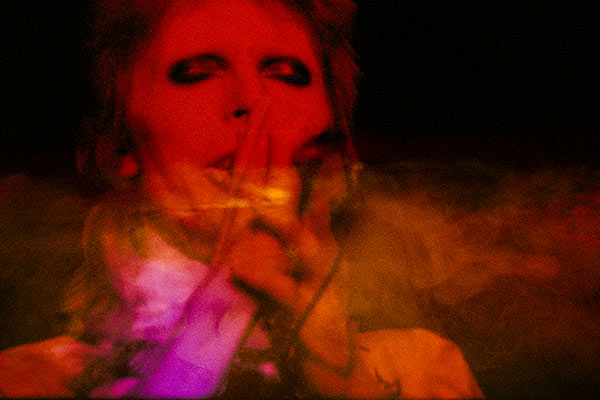David Bowie was a singular talent whose loss still resonates six years on from his death.
Yes, we will always have the music, but Bowie was more than the songs. He was an artist who designed every facet of his works with intent. A chameleon who wanted to be anything but what little boys born into post-war Brixton were supposed to become. He hid in plain sight, whenever he felt the sense of mystery around him slipping he would simply disappear from view. Perhaps in search of answers to the questions we all ask, perhaps to be inspired or perhaps because who can be David Bowie all the time?
You might find the answers to such musings in ‘Moonage Daydream’ which alternates between telling you its intended themes very clearly and leaving itself open to interpretation. Unlike conventional documentaries there are no recounts from family, friends or collaborators. Clips of interviews play but only Bowie is allowed to speculate or answer about himself. His words accompanied by a plethora of images from concerts and films spanning the years, to previously unseen videos and artworks the musician made.
Along with a series of galactic images, it gives the impression Bowie is speaking to us from beyond the expanse of time and space undiminished by death. Experimental like Bowie’s music, Brett Morgen’s documentary proves sublime and frustrating. It opens with mysterious images of the universe, and we experience a sense of wonder as Ziggy Stardust takes to the stage for an early concert. Then, archive interviews unpack all the fascination and intrigue he drew as his fame took off. It gets to the crux of how he always presented personas even when he 'didn’t' and points to how, as Bowie aged, his beliefs still resonated.
Yet the passages where Brett doesn’t underline his themes seem to fire the imagination more. Leaning into the avant garde might have yielded better results, as sometimes the interview clips cover ground well-trodden without the human element of those who loved him. That is in keeping with the overall idea of the film, which seems to want to communicate the singer’s philosophies with his fans directly rather than talk about the man himself too much.
Certain visuals repeat and certain topics keep coming up, successfully conjuring a sense of a lifetime. Images of him young and old appear within seconds, over minutes of screen time he contradicts himself with quotes said years apart. He evolves before our eyes from a young man in search of something into an older man who maybe found some peace and love.
It is clear what Brett was trying to convey with ‘Moonage Daydream’, and he achieves it. The director lacks the disorientating conviction and visual inventiveness of, say, what a David Lynch might have done, yet he does for the most part make a daydream that is to be experienced rather than seen. If it proves not dreamy enough for some, then we will always have the music.
‘Moonage Daydream’ is in cinemas 15 September.

